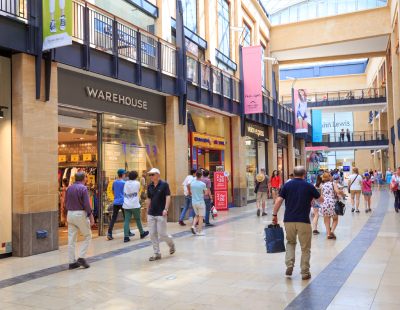“The role of retail in our towns and city centres has changed dramatically in recent years. There are various reasons for this, from advances in technology and online shopping, to the lifecycle of certain retail formats.”
“We were already in a position pre-Covid where evolution was critical to maintain footfall and keep people engaged. The growth in city centre living combined with more varied working hours had also highlighted the need for easy access to flexible format convenience shopping and other services within our towns and city centres.”
Cook says it will become even more crucial to offer a more diversified shopping experience alongside a wider mix of uses post-pandemic.
“From September 1 2020 a new broad ‘Commercial, business and service’ Use Class E was created, combining uses such as retail, restaurants, cafes, offices, gyms and health centres into one broad category. With certain exceptions, changes within this class will not require planning permission.
“The legislation has at its heart a more general desire from the government to provide flexibility for businesses to adapt, diversify and respond quickly to the changing demands of communities,” he adds.
Supporting housing delivery in towns, city centres and on high streets
According to Cook, permitted development rights allowing the change of use of various premises have also evolved.
He says: “In August 2020 a new permitted development right was introduced to allow the demolition of purpose-built detached blocks of flats, offices and light industrial premises, and replace them with purpose-built detached buildings for use as flats or a single dwelling house.”
“Additional rights also provided for the construction of new dwellings on top of purpose-built detached blocks of flats; and certain other buildings. These rights are subject to certain conditions as well as a prior approval process.”
“The government has recently consulted upon further changes to support housing delivery including a new permitted development right to allow the change of use from a use or mix of uses within the new Class E to residential use, subject to conditions and prior approvals.”
He goes on to say: “The government described this as going ‘significantly beyond existing rights, allowing for restaurants, indoor sports, and creches, etc. to benefit from the change of use to residential under permitted development rights for the first time’. These changes are radical and controversial with questions being asked about the impact of the loss of commercial spaces and infrastructure investment the changes may generate a need for. “
Greener and healthier cities
“The pandemic highlighted the need for green infrastructure to be at the heart of the creation and regeneration of city centres moving forward, particularly to respond to the fact that many people living in urban centres have limited or even no private outdoor amenity space.”
“This will not only enable us to adapt to climate change and reduce pollution, but make towns and cities more liveable.”
What does the future hold?
“Covid has emphasised the changes that were already happening to our town and city centres. The government has taken the opportunity to introduce further planning related flexibility for uses and changes of use which it hopes will kick start the post-Covid economic recovery.”
“It remains to be seen whether these changes strike the right balance between the flexibility and the correct amount of regulation needed to revive our town and city centres after lockdown.”
Recently, Property Investor Today has asked if housing is the future of the high street, how new planning and social laws can boost London town centres, and if the high street can be saved by residential redevelopment.






.png)



.jpg)





Join the conversation
Be the first to comment (please use the comment box below)
Please login to comment